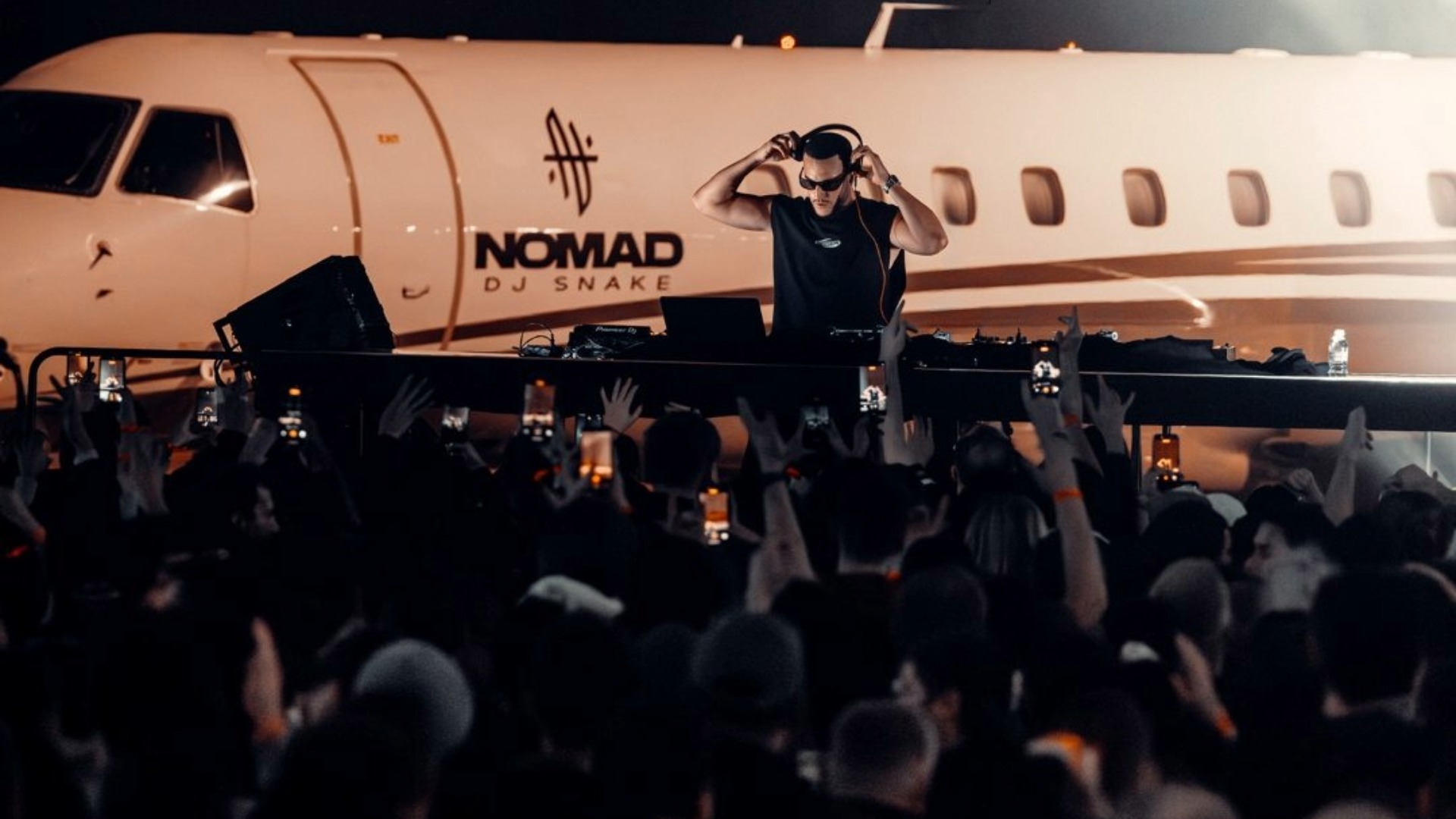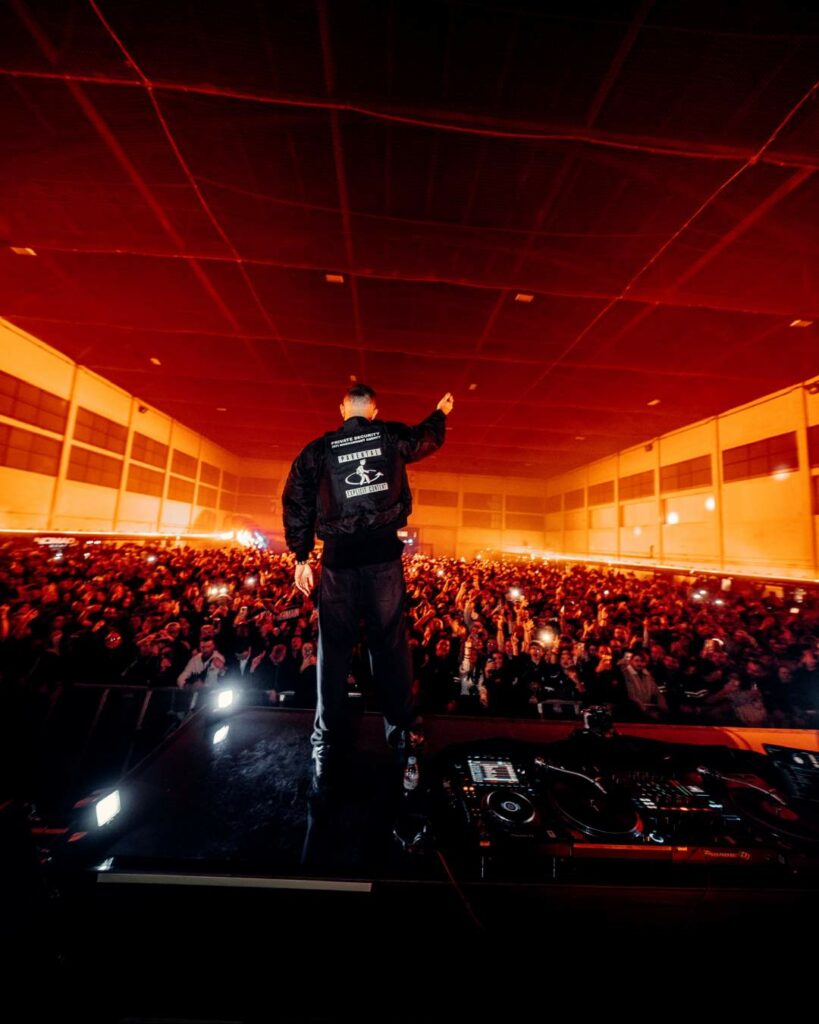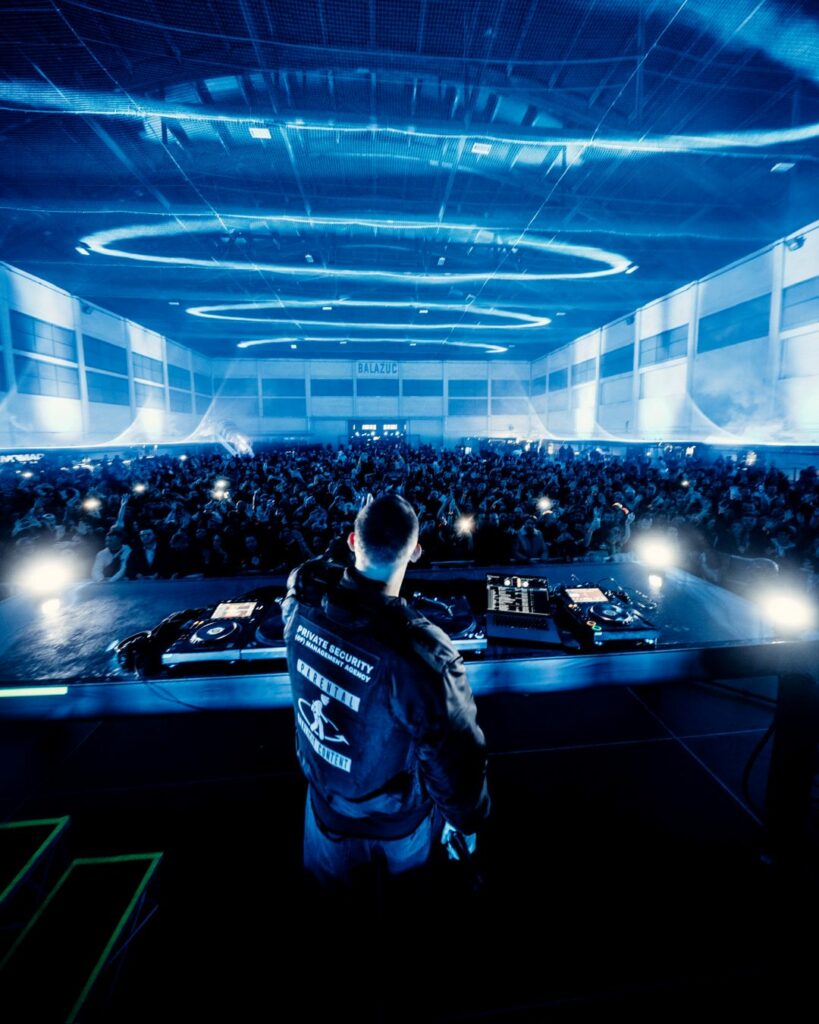‘I wanted to use my voice for the voiceless’: DJ Snake on new album Nomad
“We just talk about [immigrants] like they’re a statistic, so I wanted to humanise them and tell their story,” the artist tells Rolling Stone UK at the launch of his latest EP in Paris
By Anu Shukla

EDM-Trap screeches through the cavernous hangar at Paris-Le Bourget Airport as 2,000-plus fans bounce in unison to the warm-up DJ. Behind the open-air stage, a private jet emblazoned with Snake’s new album title NOMAD glints under the industrial lights. DJ Snake is about to make an entrance, and the crowd is waiting for him to alight from the jet and step onto the stage any minute now. He eventually does, to rapturous applause from the roaring crowd.
Fans have been waiting for this moment for a long time – including Beatriz from Spain. “He’s constantly experimenting so I was curious to see what he’d come up with this time,” she tells Rolling Stone UK, adding, “Being here with over 2,000 people to hear the new album and some of his older classics felt massive yet also really intimate.” Parisian content creator Zoe said the Amadou and Mariam collaboration piqued her curiosity. “Hearing [the album] at the release party immediately pulled me in. Pure energy from start to finish,’ she says.
Nomad is five years in the making, and for Laden P, a music producer and DJ from Milan, it’s rare to see an artist drop an album in this way. “Sharing the exact moment of release with your favourite artist is something completely out of the ordinary, since most artists are more likely to celebrate such a moment in private.” Pulling a filthy bassface to a remix of ‘Turn Down for What’, he says he appreciates new album track ‘Noventa’, which features a “moonbahton-style rework.”

Snake hops through multiple genres, spanning automotivo baile funk to tribal tech house rhythms and ’90s house-y vibes to dubstep and distorted noise. He tricks the fans into leaving multiple times but keeps them engaged until the gig finishes a couple of hours later than planned.
Growing up in the suburbs of Paris, Snake started out as a 14-year-old hip-hop DJ before moving to open-format sets and putting in the work to create his own productions. Things shifted rapidly in 2011 when his contribution to Lady Gaga’s Born This Way album earned him a Grammy nomination and opened doors in ways he’d never before experienced. He tells Rolling Stone UK that “switching to that new world and being part of big-stage shows and global collaborations,” after emerging from the underground – where he’d worked in local clubs and studios – “was thrilling but also disorienting.”
He adds, “When the stakes become enormous and the expectations stack up, my biggest challenge has been staying grounded and true to my artistic vision.” The key lesson when reaching such a level of success, he says, is to “double down on authenticity and make sure you don’t let the business side or the hype dictate your music.” Things changed fast for Snake, but he’s conscious that “the internal work has to keep going.”
Massive commercial success means he’s no longer completely submerged in the underground culture that he emerged from. But he says that his dedication to experimentation also means he’s not fully commercial either. “I’ve always been a chameleon (in this sense) but it’s weird to say that because my name is Snake,” he jokes. “I can drop the craziest techno record and two weeks later, I’m in India or the Middle East or dropping some crazy baile funk from Brazil.”
Meanwhile, on tracks like ‘Patience’ that reworks Amadou & Mariam’s ‘Sabali’, Snake says he’s using his platform to voice the dehumanisation of refugees and asylum seekers. “Nobody has the balls to speak and I wanted to use my voice for the voiceless,” he explains. “In Europe, we always talk about immigrants, immigrants, immigrants. Nobody gives them a chance to talk. We just talk about them like they’re a statistic so I wanted to humanise them and tell their story.” Electronic music, he adds, is not just about raving, but also to tell stories, and “I wanted to be one of those guys to do that.”
Snake – and acts like Major Lazer, Bad Bunny, Wizkid, Burna Boy, Black Coffee, Karol G, Rema and Aya Nakamura – have for time now, personified a new phase in ‘world music’, fuelled by trends incubating in places like Lagos, São Paulo, Cairo, Seoul, Bamako, San Juan and Medellín. He says it’s a movement representing the antithesis to western-centric sounds that have dominated the industry for so long.

“Now you turn on Netflix, the top ten (films) are all Korean. On TikTok, Brazilian music is killing it on the trend. People in Japan are dancing to Brazilian music. People in Brazil are watching Turkish or Korean Netflix series. People in the US are playing African music, Nigerian music. Everything is moving. I think Western music is slowing down – probably a lack of authenticity – while other parts of the world are bringing fresh ideas. When you see Bad Bunny at the Super Bowl, it’s a big statement. It’s great because we need new blood; it can’t be the same thing over and over. I’m glad because this is something I’ve always represented: world music. I can’t do 10 pop records in English in the same format. I like to switch things around; now is the right time to do that, and I feel blessed.”
Snake is currently planning collaborations with emerging local artists across North Africa and the Middle East. “It’s so rich,” he says of the region’s sounds and styles, naming Algeria, Egypt, Iraq and Saudi Arabia as key scenes that inspire him. “Every day I discover a new artist. And I think the reason this market is going to blow up is because they’re not trying to sell Western music anymore – they’re not copying what’s going on in the US or Europe. They’ve created their own wave, and that’s exactly how you break a market. Nobody’s trying to buy a copy. That’s really interesting, and I’m very excited about this.”
